
Tbilisi
Georgian, English
3.7 Million
5°C to 30°C
Georgian Lari (GEL)
12+ Medical Universities
Looking to study medicine abroad? Georgia has become a top choice for Indian students seeking quality MBBS education without breaking the bank. Located at the crossroads of Europe and Asia, Georgia offers world-class medical training with modern facilities and experienced professors at a fraction of the cost of private Indian medical colleges.
For 2025-26, Georgian medical universities are accepting international students into their English-taught MBBS programs. The 6-year program includes 5 years of classroom and practical learning followed by a hands-on clinical internship year, preparing you for a successful global medical career.
This guide covers everything you need to know about MBBS in Georgia - from affordable fees and NMC-approved universities to admission steps and student life. Whether you're worried about costs, education quality, or job prospects after graduation, Georgia's medical schools deliver exceptional value that deserves your attention.
Why are thousands of Indian students choosing Georgia for MBBS? The answer is simple - Georgia offers the perfect blend of quality education and affordability that's hard to find elsewhere. Georgian medical universities have built strong reputations with their internationally recognized programs taught entirely in English.
For Indian students struggling with NEET cutoffs and the sky-high fees of private medical colleges back home, Georgia provides a practical solution. With NMC approval, state-of-the-art labs, and patient-focused training, Georgian medical degrees open doors worldwide. Top accreditation bodies like WHO, FAIMER, and India's National Medical Commission have validated these programs.
The MBBS curriculum spans 6 years - 5 years of classroom and lab work followed by a crucial clinical internship year. With tuition fees between just ₹3.3-6.6 lakhs annually (compared to ₹15-25 lakhs in Indian private colleges), students save 60-70% while receiving comparable or better education. This winning combination of quality teaching, affordable fees, and global recognition explains why Georgia has become a medical education hotspot for Indian students.

| Program Aspect | Information |
|---|---|
| Degree Conferred | Doctor of Medicine (MD) - Equivalent to Indian MBBS |
| Academic Calendar Start | September |
| Program Length | 6-Year Comprehensive Program (5+1) |
| Entry Requirements | Minimum 50% in Physics, Chemistry, Biology; Valid NEET Score |
| Instruction Language | English (100% English-taught programs available) |
| Annual Tuition Range | USD 4,000-8,000 (₹3.3-6.6 Lakhs); First year may be higher at some universities; Private universities like BAU International University Batumi charge USD 6,000 for first year and USD 4,800 for subsequent years |
| Monthly Living Expenses | USD 250-270 (₹20,000-25,000) |
| Top-Rated Institutions | Tbilisi State Medical University, Batumi Shota Rustaveli State University, BAU International University Batumi, Geomedi Medical University |
| Accreditation Bodies | National Medical Commission (India), World Health Organization, FAIMER, Ministry of Education Georgia |
Getting into a good medical college in India has become a nightmare for many aspiring doctors. With over 23 lakh NEET applicants competing for just 1 lakh seats and private colleges charging fees that most families can't afford, talented students are looking beyond borders. Georgia has emerged as a smart alternative that solves both the seat shortage and affordability problems.
Information about Eligibility Requirements for MBBS in Georgia for MBBS in Georgia will be updated soon.
Georgia hosts numerous prestigious medical universities that have established themselves as centers of academic excellence. These institutions contribute significantly to the country's healthcare system by maintaining rigorous educational standards aligned with international medical frameworks.

| Founded | 1930 |
|---|---|
| Type | Government sector medical University |
| Location | Tbilisi, Georgia |
| Recognition | NMC, WHO, WFME, FAIMER |
| FMGE Pass Rate | 38% |
Tbilisi State Medical University (TSMU) is one of the oldest and most prestigious medical institutions in Georgia. Established in 1930, it has a rich history of academic excellence and has trained thousands of medical professionals from around the world. The university offers comprehensive medical education with state-of-the-art facilities, modern laboratories, and extensive clinical training opportunities. TSMU is particularly known for its strong clinical programs and research initiatives. The university follows a 6-year MBBS program with English as the medium of instruction, making it accessible for international students.
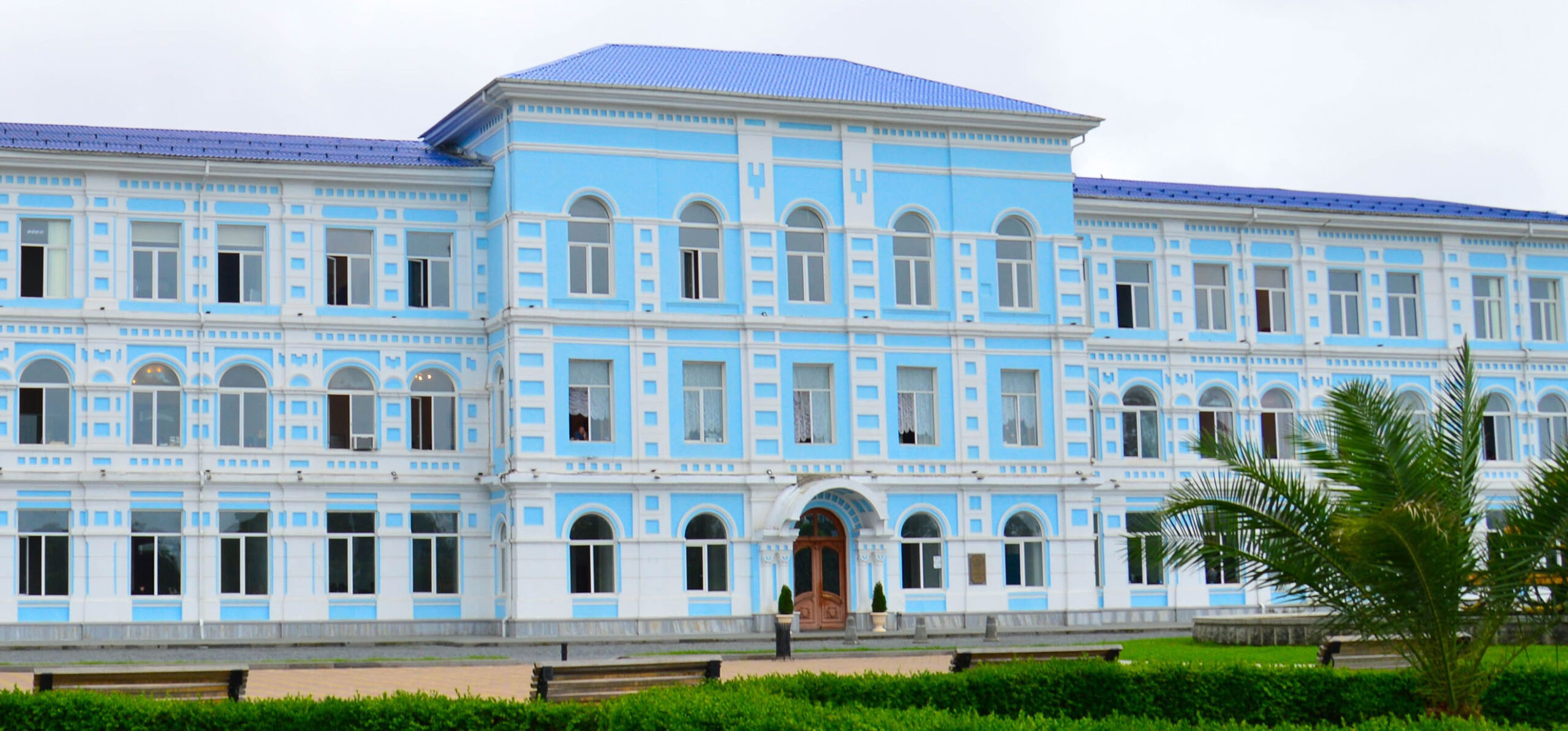
| Founded | 1935 |
|---|---|
| Type | Government |
| Location | Batumi, Georgia |
| Recognition | NMC, WHO, WFME, FAIMER |
| FMGE Pass Rate | 32% |
Batumi Shota Rustaveli State University is a leading educational institution located in the beautiful coastal city of Batumi. Named after the famous Georgian poet Shota Rustaveli, the university offers high-quality medical education with a focus on practical training. The university's modern campus features well-equipped laboratories, simulation centers, and clinical facilities. Its location on the Black Sea coast provides students with a unique study environment combining academic excellence with a pleasant coastal lifestyle.
| Founded | 1918 |
|---|---|
| Type | Government |
| Location | Tbilisi, Georgia |
| Recognition | NMC, WHO, WFME, FAIMER |
| FMGE Pass Rate | 35% |
Ivane Javakhishvili Tbilisi State University (TSU) is the oldest and most prestigious university in Georgia and the entire Caucasus region. Founded in 1918, it has a rich academic tradition and is named after its founder, the prominent Georgian historian Ivane Javakhishvili. The university offers comprehensive medical education with a strong emphasis on research and innovation. TSU's Faculty of Medicine provides students with access to modern laboratories, simulation centers, and clinical facilities at affiliated hospitals throughout Tbilisi.
| Founded | 1998 |
|---|---|
| Type | Private |
| Location | Tbilisi, Georgia |
| Recognition | NMC, WHO, WFME, FAIMER |
| FMGE Pass Rate | 57% |
Geomedi Medical University is a leading private medical institution in Georgia known for its high FMGE pass rates among Indian students. Established in 1998, the university offers a modern approach to medical education with a strong focus on practical training and clinical skills. The campus features state-of-the-art facilities including advanced laboratories, simulation centers, and a digital library. Geomedi is particularly popular among international students due to its supportive learning environment and comprehensive student services.
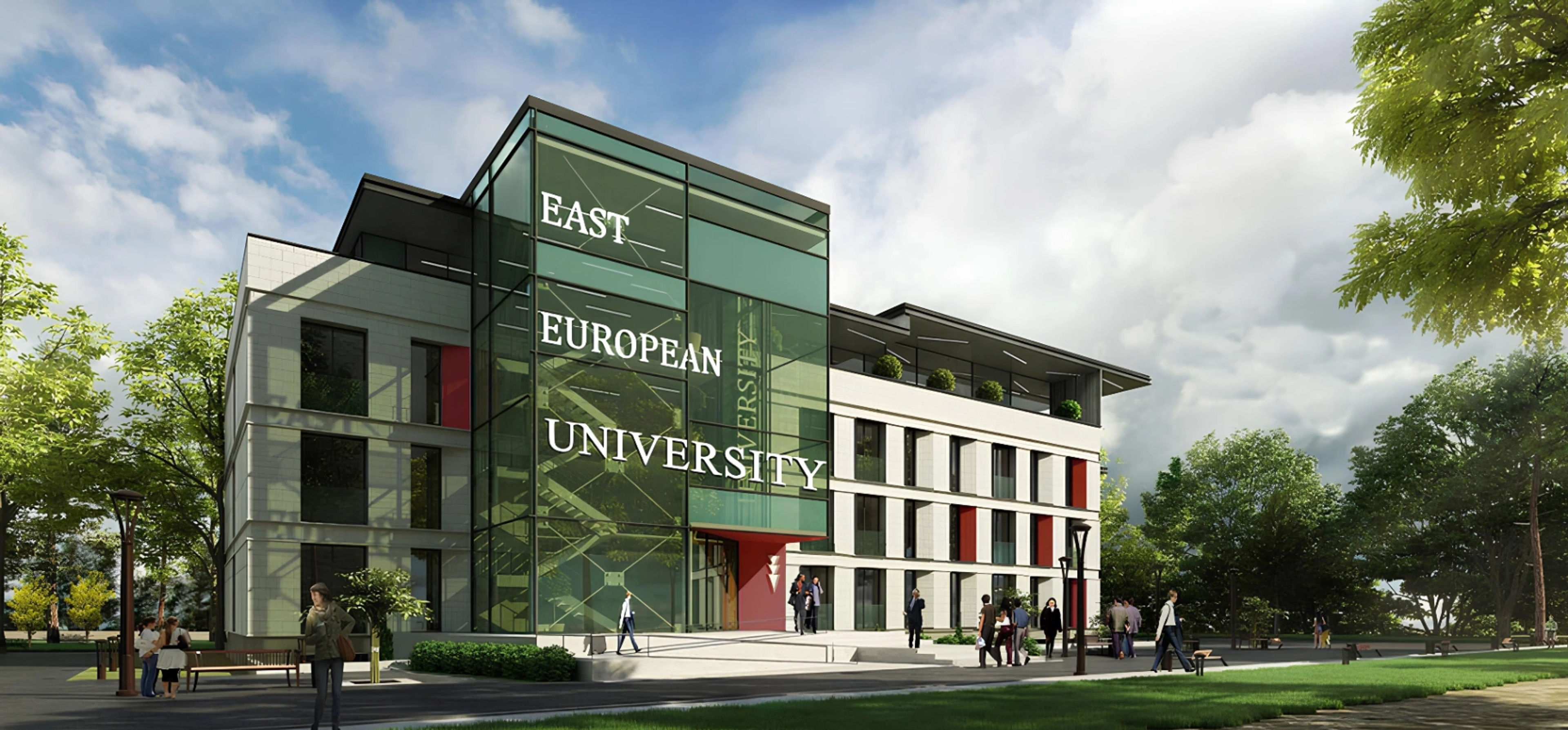
| Founded | 2012 |
|---|---|
| Type | Private |
| Location | Tbilisi, Georgia |
| Recognition | NMC, WHO, WFME, FAIMER |
| FMGE Pass Rate | 30% |
East European University is a relatively new but rapidly growing private medical institution in Tbilisi. Founded in 2012, the university has quickly established itself as a quality provider of medical education with a modern approach to teaching and learning. The university's campus features contemporary facilities including well-equipped laboratories, simulation centers, and digital learning resources. East European University is known for its student-centered approach and strong support system for international students, including dedicated mentoring programs and career guidance services.
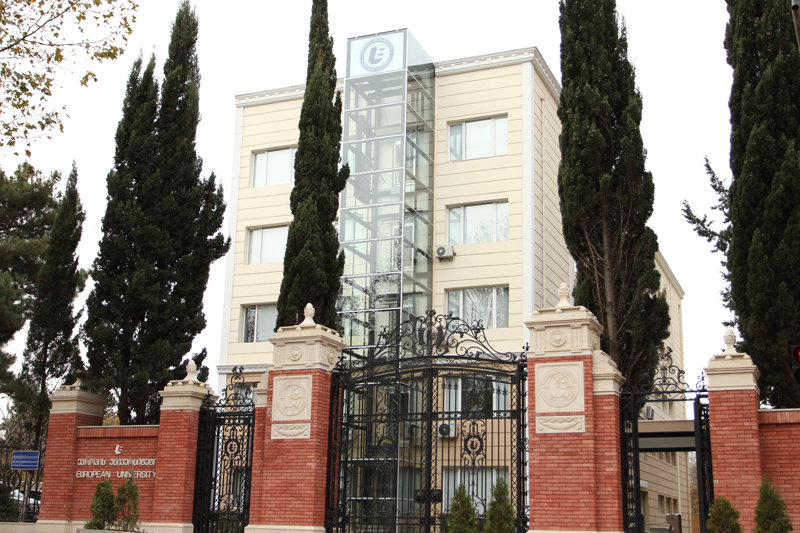
| Founded | 1995 |
|---|---|
| Type | Private |
| Location | Tbilisi, Georgia |
| Recognition | NMC, WHO, WFME, FAIMER |
| FMGE Pass Rate | 33% |
European University is a well-established private institution in Tbilisi with over 25 years of experience in medical education. Founded in 1995, the university has developed a strong reputation for its quality teaching and international outlook. The medical program follows European educational standards and emphasizes both theoretical knowledge and practical skills. The university maintains partnerships with various European medical institutions, providing students with opportunities for international exchanges and clinical rotations. The campus offers modern facilities including advanced laboratories, a medical simulation center, and a comprehensive medical library.
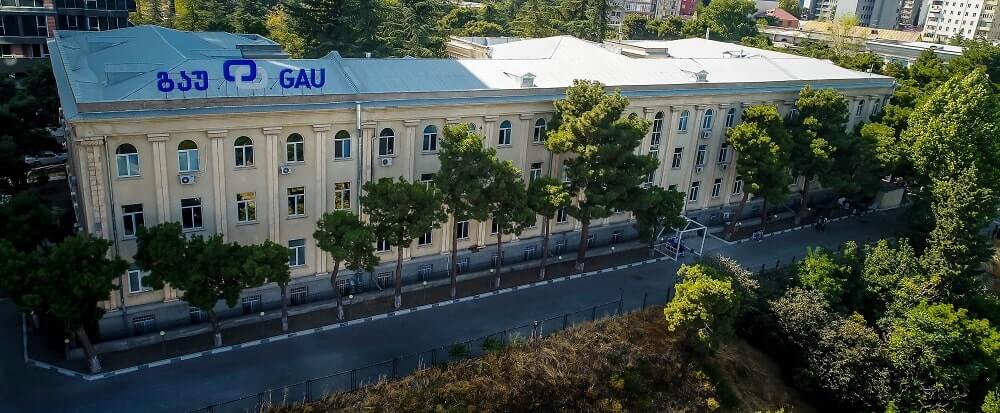
| Founded | 2001 |
|---|---|
| Type | Private |
| Location | Tbilisi, Georgia |
| Recognition | NMC, WHO, WFME, FAIMER |
| FMGE Pass Rate | 31% |
Georgian American University (GAU) is a private institution that combines American educational methodologies with Georgian medical traditions. Established in 2001, the university offers a unique approach to medical education that emphasizes critical thinking and problem-solving skills. GAU maintains strong connections with American educational institutions, providing students with opportunities for international exposure. The university campus features modern facilities including well-equipped laboratories, simulation centers, and a comprehensive medical library with both physical and digital resources. GAU is known for its supportive learning environment and personalized attention to students.

| Founded | 2001 |
|---|---|
| Type | Private |
| Location | Tbilisi, Georgia |
| Recognition | NMC, WHO, WFME, FAIMER |
| FMGE Pass Rate | 29% |
Georgian National University SEU is a private institution established in 2001 that has developed a strong reputation for its medical programs. The university is known for its scholarship opportunities, offering a 700 USD scholarship for students who complete 72 ECTS credits per academic year. SEU's medical curriculum is designed to meet international standards while incorporating local healthcare needs. The university maintains modern facilities including well-equipped laboratories, simulation centers, and digital learning resources. SEU places a strong emphasis on practical training and clinical skills development, with students gaining hands-on experience in affiliated hospitals throughout Tbilisi.
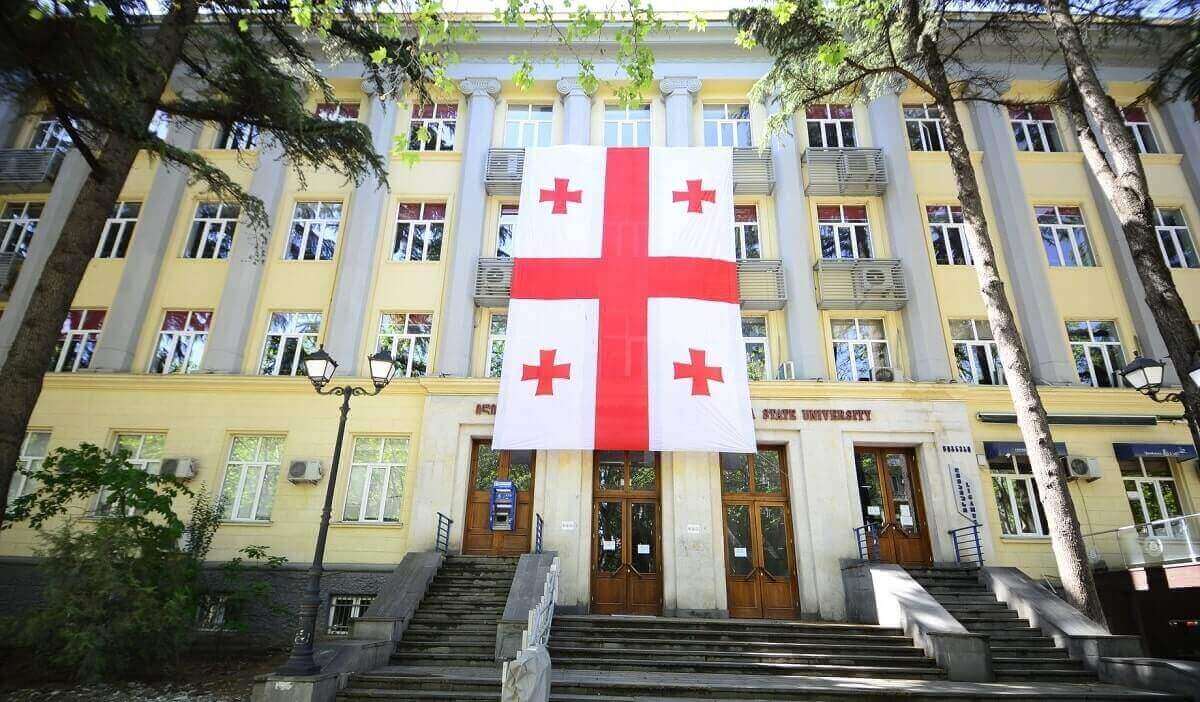
| Founded | 2006 |
|---|---|
| Type | Government |
| Location | Tbilisi, Georgia |
| Recognition | NMC, WHO, WFME, FAIMER |
| FMGE Pass Rate | 34% |
Ilia State University is a relatively young but rapidly developing government institution named after the prominent Georgian writer and public figure Ilia Chavchavadze. Founded in 2006, the university has quickly established itself as a center for innovative medical education in Georgia. The university follows a modern approach to medical training with an emphasis on research and evidence-based practice. Ilia State University's medical program combines theoretical knowledge with extensive practical training in affiliated hospitals and clinics. The campus features contemporary facilities including advanced laboratories, simulation centers, and a comprehensive medical library with extensive digital resources.
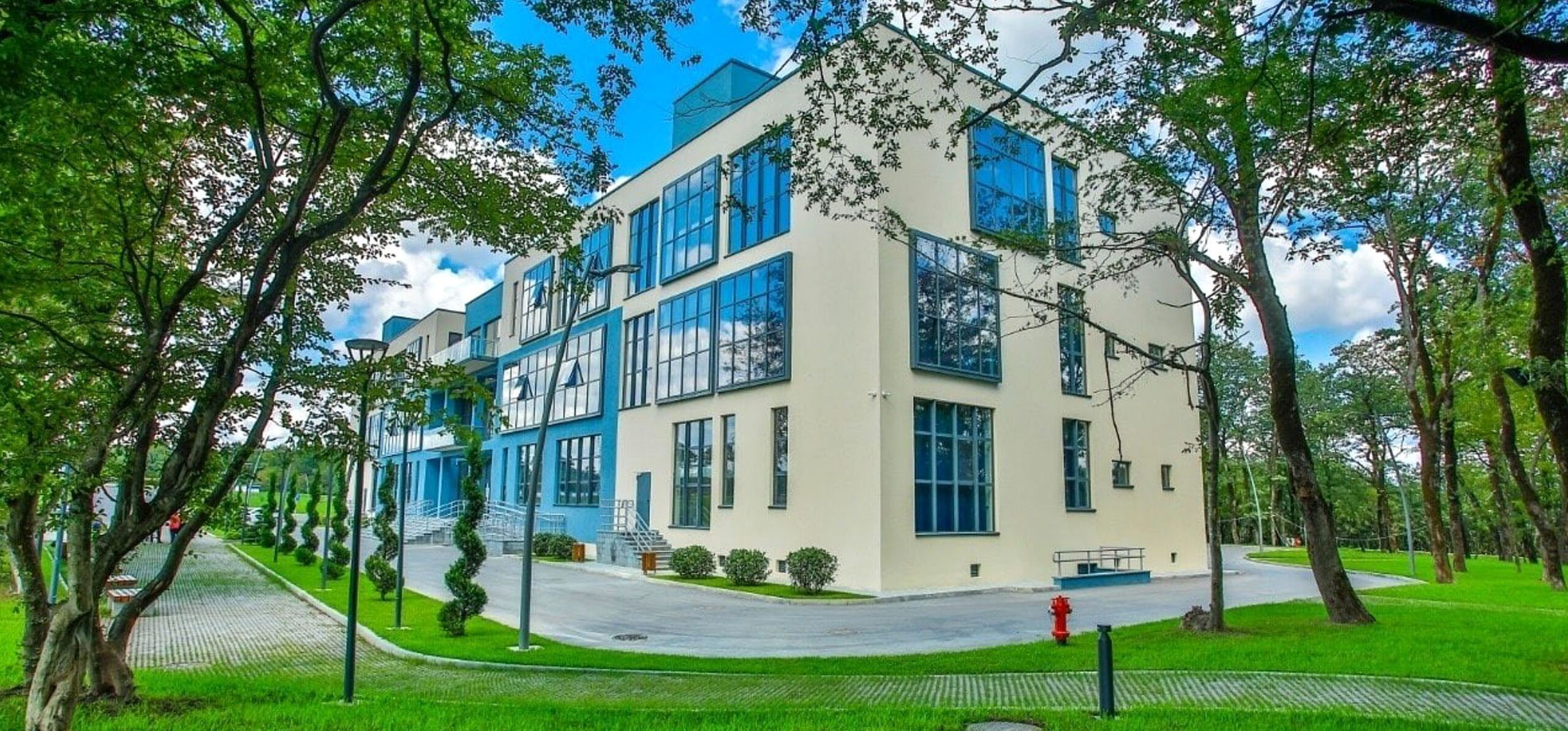
| Founded | 1992 |
|---|---|
| Type | Private |
| Location | Kutaisi, Georgia |
| Recognition | NMC, WHO, WFME, FAIMER |
| FMGE Pass Rate | 28% |
Kutaisi University is a private medical institution located in Georgia's second-largest city, Kutaisi. Founded in 1992, the university has established itself as an important center for medical education in western Georgia. The university offers a comprehensive medical program with a semester-based fee structure that many students find more manageable. First-year students are required to stay in university accommodation, which helps them adjust to life in Georgia. The university is known for its inclusive approach to international students and provides additional services such as TRC (Temporary Residence Card) and OTC (One-Time Consultation) included in the first semester fee package.
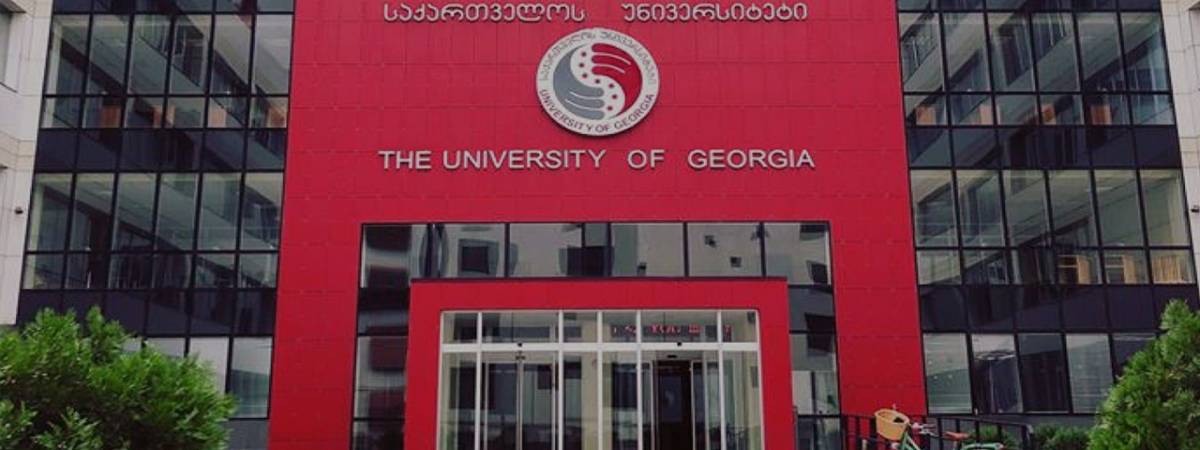
| Founded | 2004 |
|---|---|
| Type | Private |
| Location | Tbilisi, Georgia |
| Recognition | NMC, WHO, WFME, FAIMER |
| FMGE Pass Rate | 36% |
University of Georgia is a modern private institution established in 2004 that has quickly gained recognition for its quality medical education. Located in Tbilisi, the university offers a comprehensive medical program with a strong focus on practical skills and clinical training. The university maintains high academic standards, requiring students to have at least 50% marks in Physics, Chemistry, and Biology for admission. With state-of-the-art facilities including modern laboratories, simulation centers, and digital learning resources, the University of Georgia provides students with an excellent learning environment. The university is known for its international outlook and maintains partnerships with various medical institutions worldwide.
For detailed information about tuition fees, living expenses, and other financial aspects of studying at Georgian medical universities, please contact our admissions counselors. They can provide you with the most up-to-date information tailored to your specific circumstances and help you understand the total cost of education at each institution.
"Do I need NEET for MBBS in Georgia?" This is one of the most common questions we get from Indian students. Here's the straightforward answer: Yes, NEET is required if you plan to practice medicine in India after graduation. According to the latest NMC guidelines, Indian students must qualify in NEET-UG (no minimum score requirement) to study medicine abroad if they want their degree recognized in India. This rule ensures quality control and standardization of medical education. However, if you're planning to practice exclusively outside India (in the US, UK, Europe, etc.), you can technically apply without NEET qualification. But we strongly recommend qualifying NEET regardless of your future plans, as regulations can change, and having NEET qualification gives you the flexibility to practice in India if needed later in your career.
Information about Documentation Requirements for MBBS in Georgia for MBBS in Georgia will be updated soon.
One of the biggest concerns for students considering MBBS abroad is: "Will my degree be recognized back home and internationally?" With Georgian medical universities, the answer is a resounding YES! Georgian medical degrees carry serious weight globally thanks to recognition from key medical authorities:
The medical curriculum in Georgian universities is comprehensive and follows international standards. While specific subjects may vary slightly between institutions, the general structure includes:
| Semester | Core Subjects |
|---|---|
| 1st Semester | Medical Terminology, Embryology, Histology Cytology, Language, Molecular Biochemistry, Anatomy Part I, Genetics, Biochemistry |
| 2nd Semester | Clinical Biochemistry Part I, History of Medicine, Immunology, Physiology Part I, Lab Chemistry, Language, Anatomy Part II, Medical Research |
| 3rd Semester | Communication Skills, Physiology Part II, Microbiology Part I, Bioethics, Anatomy Part III, Clinical Skills, Biochemistry Part II |
| 4th Semester | Pharmacology Part I, Microbiology II, Physiology of Behaviour, Pathology, Physiology Part III |
| 5th-6th Semesters | Advanced clinical subjects including Pharmacology, Internal Diseases, Surgery, Radiology, Biostatistics, Systemic Pathology |
| 7th-8th Semesters | Specialized clinical rotations including Dentistry, Psychiatry, Neurology, Infectious Disease, Endocrinology, Obstetrics, ENT |
| 9th-10th Semesters | Advanced clinical subjects including Internal Medicine, Traumatology, Surgery, Dermatovenerology, Pediatrics, Gynecology |
| 11th-12th Semesters | Final clinical rotations including Pharmacotherapy, Oncology, Public Health, Rehabilitation, Epidemiology, Emergency Medicine, Critical Care |
Planning is crucial when applying to Georgian medical universities. Here's the typical admission timeline to help you prepare:
"What can I do with a Georgian medical degree?" This is a common question from prospective students. The good news is that your Georgian MBBS opens doors worldwide:
Worried about language barriers? Don't be! All MBBS programs in Georgia are taught 100% in English, from lectures and textbooks to exams and clinical training. This means Indian students can jump right into their studies without any language hurdles. While you don't need to know Georgian for your coursework, picking up some basic phrases helps when interacting with local patients during hospital rotations. Most universities include free Georgian language classes in your first year to help you communicate better during your clinical training. This English-medium instruction combined with practical language support ensures you can focus on becoming a great doctor rather than struggling with translation issues.
| Aspect | MBBS in India | MBBS in Georgia |
|---|---|---|
| Degree | Bachelor of Medicine or Bachelor of Surgery | Doctor of Medicine (MD) |
| Eligibility | NEET Mandatory | NEET Mandatory for Indian students |
| Annual Tuition | ₹10-40 lakhs (private) | ₹3.3-6.6 lakhs |
| Program Duration | 5.5 years (4.5+1) | 6 years (5+1) |
| Admission Process | NEET exam followed by application | Direct application And Neet Score |
| Educational Approach | Blend of theoretical knowledge with practical training | European curriculum with theoretical and practical learning |
| Future Career Scope | Better opportunities in Indian hospitals, private practice | Global opportunities, PG studies in Georgia or abroad |
| Medium of Teaching | English | English |
| Monthly Living Costs | ₹15,000-20,000 | ₹20,000-25,000 |
The following table provides a detailed breakdown of annual tuition fees at leading medical universities in Georgia for the 2025-26 academic year:
| Fee Component | Amount (USD) | Amount (INR) |
|---|---|---|
| Tuition Fee (1st Year) | 11,000 USD | ₹9,02,000 |
| Tuition Fee (2nd Year) | 8,000 USD | ₹6,56,000 |
| Tuition Fee (3rd Year) | 8,000 USD | ₹6,56,000 |
| Tuition Fee (4th Year) | 8,000 USD | ₹6,56,000 |
| Tuition Fee (5th Year) | 8,000 USD | ₹6,56,000 |
| Tuition Fee (6th Year) | 8,000 USD | ₹6,56,000 |
| Total for 6 Years | 51,000 USD | ₹41,82,000 |
| Accommodation + Indian Food in Mess (Per Year) | 3,200 USD | ₹2,62,400 |
| Total Hostel & Food Expenses for 6 Years | 19,200 USD | ₹15,74,400 |
| Grand Total (Tuition Fee + Hostel + Food) for 6 Years | 70,200 USD | ₹57,56,400 |
| Other Miscellaneous Expenses (Medical Insurance, Visa Renewal & TRC) | 400-700 USD (1st Year) | ₹33,000-57,400 |
Note: Exchange rate used: 1 USD = ₹82 (as of July 2024). Fees are subject to change based on university policies and exchange rate fluctuations. Consultancy fee is applicable.
| Fee Component | Amount (USD) | Amount (INR) |
|---|---|---|
| Tuition Fee (per year) | 8,000 | ₹6,64,000 |
| Total for 6 Years | 48,000 | ₹39,84,000 |
| Hostel Fee (per year) | 4,000 | ₹3,32,000 |
Note: Consultancy fee is applicable.
| Fee Component | Amount (USD) | Amount (INR) |
|---|---|---|
| Tuition Fee (1st Year) | 8,000 | ₹6,64,000 |
| Tuition Fee (2nd-6th Year) | 5,000 | ₹4,15,000 |
| Total for 6 Years | 33,000 | ₹27,39,000 |
| Hostel Fees - Including Indian Food (Per Year) | 3,000 | ₹2,49,000 |
| Grand Total (Tuition + Hostel + Food) for 6 Years | 51,000 | ₹42,33,000 |
Note: Consultancy fee is applicable.
| Fee Component | Amount (USD) | Amount (INR) |
|---|---|---|
| Tuition Fee (per year) | 6,000 | ₹4,98,000 |
| Total for 6 Years | 36,000 | ₹29,88,000 |
| Hostel Fee (per year) | 2,000 | ₹1,66,000 |
Note: Consultancy fee is applicable.
| Fee Component | Amount (USD) | Amount (INR) |
|---|---|---|
| Tuition Fee (1st Year) | 6,000 | ₹4,98,000 |
| Tuition Fee (2nd Year) | 4,800 | ₹3,98,400 |
| Tuition Fee (3rd Year) | 4,800 | ₹3,98,400 |
| Tuition Fee (4th Year) | 4,800 | ₹3,98,400 |
| Tuition Fee (5th Year) | 4,800 | ₹3,98,400 |
| Tuition Fee (6th Year) | 4,800 | ₹3,98,400 |
| Total for 6 Years | 30,000 | ₹24,90,000 |
| Hostel Fees - Including Indian Food (Per Year) | 3,000 | ₹2,46,000 |
| Total Living Expenses for 6 Years | 18,000 | ₹14,76,000 |
| Grand Total (Tuition + Hostel + Food) for 6 Years | 48,000 | ₹39,66,000 |
Note: Consultancy fee is applicable.
| Fee Component | Amount (USD) | Amount (INR) |
|---|---|---|
| Tuition Fee (1st Year) | 6,500 | ₹5,39,500 |
| Tuition Fee (2nd Year) | 6,000 | ₹4,98,000 |
| Tuition Fee (3rd Year) | 6,000 | ₹4,98,000 |
| Tuition Fee (4th Year) | 6,000 | ₹4,98,000 |
| Tuition Fee (5th Year) | 6,000 | ₹4,98,000 |
| Tuition Fee (6th Year) | 6,000 | ₹4,98,000 |
| Total for 6 Years | 36,500 | ₹30,29,500 |
| Hostel Fees - Including Indian Food (Per Year) | 3,200 | ₹2,65,600 |
| Total Living Expenses for 6 Years | 19,200 | ₹15,93,600 |
| Grand Total (Tuition + Hostel + Food) for 6 Years | 55,700 | ₹45,93,100 |
| Miscellaneous Expenses (One Time) | 500 | ₹41,500 |
Note: Founded in 1991, David Tvildiani Medical University is a private sector medical university offering MBBS courses in English medium. The actual tuition fee is $8,000 per year, but after discount, the fee is $6,000 per year. Consultancy fee is applicable.
| Fee Component | Amount (USD) | Amount (INR) |
|---|---|---|
| Tuition Fee (1st Year) | 7,000 | ₹5,74,000 |
| Tuition Fee (2nd-6th Year) | 6,000 | ₹4,92,000 |
| Total for 6 Years | 37,000 | ₹30,34,000 |
| Hostel and Food Expenses (Per Year) | 3,000-3,500 | ₹2,46,000-2,87,000 |
| Total Living Expenses for 6 Years | 18,000-21,000 | ₹14,76,000 |
| Grand Total (Tuition + Hostel + Food) for 6 Years | ~55,000 | ₹45,10,000 |
| Miscellaneous Expenses (One Time) | 400-700 | ₹33,200-58,100 |
Note: Consultancy fee is applicable.
| Fee Component | Amount (USD) | Amount (INR) |
|---|---|---|
| Tuition Fee (1st Year) | 5500 | ₹4,51,000 |
| Tuition Fee (2nd Year) | 5000 | ₹4,10,000 |
| Tuition Fee (3rd Year) | 5000 | ₹4,10,000 |
| Tuition Fee (4th Year) | 5000 | ₹4,10,000 |
| Tuition Fee (5th Year) | 5000 | ₹4,10,000 |
| Tuition Fee (6th Year) | 5000 | ₹4,10,000 |
| Total for 6 Years | 30,500 | ₹25,01,000 |
| Hostel + Food Charges (Per Year) | 3000-3200 | ₹2,46,000-2,64,000 |
| Total Living Expenses for 6 Years | ~19,200 | ₹15,84,000 |
| Grand Total (Tuition + Hostel + Food) for 6 Years | ~49,700 | ₹40,85,000 |
| Other Miscellaneous Expenses (Visa, Medical Insurance & TRC) | 700 (1st Year) | ₹57,400 |
Note: Founded in 2012, East European University is a private sector medical university in Tbilisi, Georgia offering MBBS courses in English medium. The university provides quality medical education with modern facilities and clinical training opportunities. Consultancy fee is applicable.
Note:Georgia offers a remarkably affordable lifestyle for international students. The average monthly expenses range from ₹20,000-25,000, excluding accommodation. Costs can be further reduced through shared accommodations and careful budgeting.
| Item | Approximate Cost |
|---|---|
| Restaurant meal | ₹300-500 |
| Fast food meal | ₹250-350 |
| Coffee | ₹100-150 |
| Milk (1 liter) | ₹60-80 |
| Bread (loaf) | ₹30-50 |
| Rice (1 kg) | ₹80-120 |
| Eggs (dozen) | ₹120-150 |
| Chicken (1 kg) | ₹250-350 |
| Vegetables (1 kg) | ₹50-100 |
| Service | Cost |
|---|---|
| Single public transport ticket | ₹15-30 |
| Monthly transit pass | ₹500-800 |
| Taxi starting fare | ₹100-150 |
| Service | Cost |
|---|---|
| Electricity, heating, cooling, water | ₹2,000-3,000 |
| Mobile phone plan | ₹500-800 |
| Internet service | ₹1,000-1,500 |
| Type | Cost |
|---|---|
| University dormitory | ₹8,000-15,000 |
| Shared apartment | ₹15,000-25,000 |
| Private apartment | ₹25,000-40,000 |
!About Georgia Georgia is a small, mountainous country situated at the intersection of Eastern Europe and Western Asia. Known for its rich culture and heritage, Georgia has a history spanning thousands of years. The country boasts amazingly varied landscapes, from the Black Sea coast to the Caucasus Mountains, making it a perfect destination for anyone who appreciates history and nature. Georgia is recognized for its excellent educational standards and well-established research infrastructure. It ranks as one of the safest countries globally, providing a secure environment for international students. The country is highly affordable and offers a platform to experience cultural diversity at its best.
| Parameter | Details |
|---|---|
| Population | 3,700,000 (May 2024) |
| Exchange Rate | 1 GEL = ₹30.6 (May 2024) |
| Climate | Humid Subtropical Climate |
| Location | Southeastern Europe and West Asia |
| Capital | Tbilisi |
| Currency | Georgian Lari (GEL) |
| Flight Duration from Delhi | 5 hours 10 minutes |
| Time Difference from India | +1.5 hours |
| International Student Population | 25,000+ (2023) |
| International Student Percentage | 8.4% |
| Primary Languages | Georgian, with English in academic settings |
| Academic Calendar | September-July |
| Medical Program Duration | 6 years (5 years academic + 1 year internship) |
Watch real stories from our successful MBBS abroad students